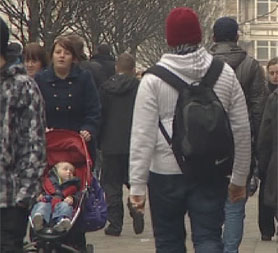Manchester austerity cuts to hit frontline services
Leisure centres, libraries, swimming pools and public toilets are set to close across Manchester as part of the city council’s bid to make savings of nearly £110m this financial year.

Manchester City Council has revealed details of proposed cuts to its budget as part of wide austerity measures being taken across the country.
The council says the savings – almost £110m this financial year and another £170m next year – cannot be achieved through efficiency savings alone.
The leader of Manchester City Council, Sir Richard Leese, said putting the budget of cuts together – £60m more than it anticipated – had been a “most unpalatable process”.
More than a quarter of its children’s services budget will be slashed, with the council no longer directly providing many youth facilities.
The running of youth centres will be transferred to partner agencies such as voluntary groups, with the threat of closure if no-one steps in. Tenders will also be invited for the operation of Sure Start nurseries.
Elsewhere, leisure centres in Levenshulme, Ardwick and Newton Heath will close as will Levenshulme and Miles Platting swimming pools. Five small libraries face the axe, street cleaning will be stopped from midnight to 6am, parking fees may rise and all but one of the city’s public toilets will shut.
Austerity measures
Council chiefs say they need to make 25 per cent savings over the next two years and that the scale and speed required to meet the target meant it could not be achieved through efficiencies alone.
More than a third of the council’s corporate core services, such as finance and personnel departments, will be cut – “significantly more” of a proportion than frontline services, the council said.
The amount of grant funding to voluntary sector organisations will fall 22 per cent but proposals to set up a Manchester Investment Fund – using £37m of existing cash – will aid public sector groups in helping families with complex needs.
“I cannot and will not pretend that the financial position in which we have been placed is anything other than bad news. Manchester is the fourth most deprived local authority area in the country, but is among the top five hardest hit local authorities.” Sir Richard Leese
The annual Lord Mayor’s reception will be cancelled, less will be spent on events in the city and savings will be made in communication.
The council said 41 per cent of the staff leaving will be managers.
It is proposed that council tax will, as in 2010/11, be frozen.
Bernard Priest, the council’s executive member for finance, dismissed rumours that the council was sitting on substantial cash reserves amid the proposed cutbacks.
“There has been some suggestion that Manchester City Council has somehow been hoarding our reserves while having to lay off staff,” he said.
“I want to make it perfectly clear this is untrue. Our reserves had been set aside to pay for necessary projects, such as new school buildings, job-creating projects in the city centre and the essential refurbishment of Central Library.
“Our voluntary package is primarily being funded through raiding these reserves. There is clearly an element of risk in this.
‘Intentional cuts’
The Conservative Local Government Minister Grant Shapps said the council was intentionally cutting the services.
“This is a cynical move by a Labour council, which is intentionally cutting frontline services and playing politics with people’s lives,” he said.
“It’s Labour politicians that are in denial about the financial mess left by the last Labour government, and they have clearly failed to prepare for the inevitable reductions in public spending as a result of Labour’s budget deficit.
“Far more could be done by the council to share back-office services with other councils across the new Greater Manchester combined authority, cutting back senior and middle management, and using the shared procurement across the area to get more for less.
“You only have to look next door to Trafford to see how more innovative councils are taking steps to protect the front line.”
But interviewed on Channel 4 News, Councillor Leese said the council was “not cutting a penny more than we have to” and was exploring every means of avoiding closures of services and buildings.
“The law requires local authorities – unlike central government – to balance our budgets every year in-year,” he said.
“We have to make £110m-worth of cuts this year, £170m next year and we have to make sure we deliver that. It isgoing to be devastating for the city.”